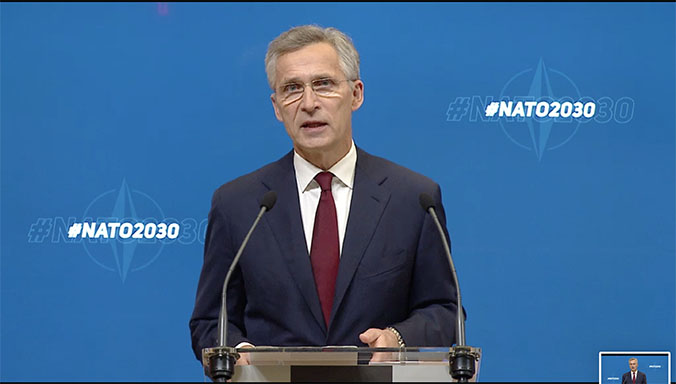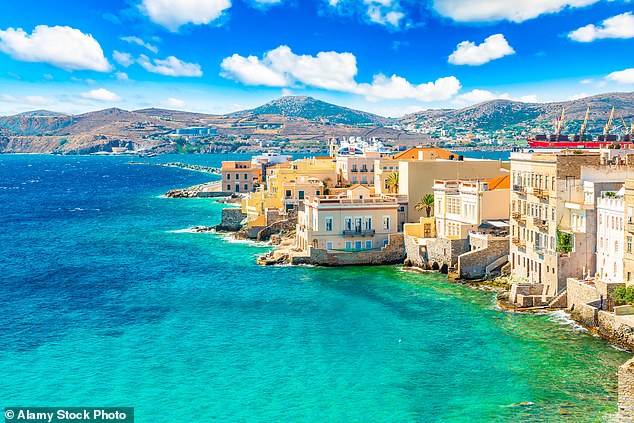#NATO2030, viziunea aliata pentru deceniul urmator, a fost lansata de Secretarul General Jens Stoltenberg in aceasta dupa amiaza.
Procesul de reflectie si adaptare se bazeaza pe trei idei principale :
- O alianta mai puternic din punct de vedere militar
- O alianta din ce in ce mai relevanta politic
- O implicare globala extinsa impotriva amenintarilor#NATO2030 reprezinta raspunsul aliat pentru uriasele provocari si amenintari extinde, militare si non-militare, ce vin asupra statelor membre.NATO este cea mai puternica alianta politico-militara din istorie. Infiintata acum 71 de ani, alianta are 30 de membri si reprezinta garantia pacii si libertatii pentru 1 miliard de oameni de pe ambele maluri ale Atlanticului.
Iata discursul Secretarului General #Stoltenberg :
Good afternoon from Brussels.
And good morning to Karen and Fred in Washington.
And welcome to all who are following us online.
Last December, NATO Leaders asked me to make our strong Alliance even stronger.
By making sure we are as effective politically as we are militarily.
And that we remain ready today to tackle the challenges of tomorrow.This is an opportunity to reflect on where we see our Alliance ten years from now.
And how it will continue to keep us safe in a more uncertain world.So today, I am happy to launch my reflection on NATO 2030.
COVID-19 has changed our lives in ways we could barely imagine.
And it has magnified existing trends and tensions when it comes to our security.Russia continues its military activities unabated.
ISIL and other terrorist groups are emboldened.
Both state and non-state actors promote disinformation and propaganda.
And the rise of China is fundamentally shifting the global balance of power.
Heating up the race for economic and technological supremacy.
Multiplying the threats to open societies and individual freedoms.
And increasing the competition over our values and our way of life.
NATO 2030 is about how we adapt to this new normal.
And to do this we must:
Stay strong militarily.
Be more united politically.
And take a broader approach globally.So first, we need a strong military Alliance.
To protect our democracies.
And to continue to compete in a more competitive world.Threats to our security have not gone away while we are focusing on the pandemic.
Just the opposite.As we look to 2030, we must continue to invest in our armed forces and modern military capabilities.
They have kept us safe for over 70 years, as they continue to do today.Security is the foundation for our prosperity. Now and in the future.
But military strength is only part of the answer.
We also need to use NATO more politically.This means bringing all the issues that affect our security to NATO’s table.
So that we can forge stronger consensus sooner and more systematically.From conflicts in the wider Middle East region, to global arms control, and the security consequences of climate change.
Using NATO more politically also means using a broader range of tools.
Military and non-military.
Economic and diplomatic.This is especially important as we work together, to strengthen the resilience of our societies and our economies.
And to ensure that we do not import vulnerabilities, into our critical infrastructure, industries, and supply chains.NATO may not always be on the front line to act.
But it must always be the forum for frank discussion and genuine consultation.In fact, NATO is the only place that brings Europe and North America together, every day.
We have the structures and the institutions in place.
What we need is the political will to use NATO.
To decide – and where necessary – to act for our shared security.
Finally, in a world of greater global competition, where we see China coming closer to us from the Arctic to cyber space, NATO needs a more global approach.
This is not about a global presence, but about a global approach.
NATO brings together 30 Allies. On both sides of the Atlantic.
Almost one billion people.
Half of the world’s military and economic might.
And a network of global partners.As we look to 2030, we need to work even more closely with like-minded countries.
Like Australia, Japan, New Zealand, South Korea.
To defend the global rules and institutions that have kept us safe for decades.
To set norms and standards.
In space and in cyber space.
On new technologies and global arms control.And ultimately, to stand up for a world built on freedom and democracy.
Not on bullying and coercion.
The challenges that we face over the next decade are greater than any of us can tackle alone.
Neither Europe alone. Nor America alone.
So we must resist the temptation of national solutions.
And we must live up to our values.
Freedom, democracy and the rule of law.
These values are what define us.
They are what make us strong.As nations. And as an Alliance.
As we continue to compete in a more competitive world, we must keep our democracies strong.
My vision for NATO 2030 is not about reinventing NATO. It is about making our strong Alliance even stronger.
Strong militarily. Stronger politically. And more global.To help us get there, I have asked a group of experts to provide new ideas.
I will continue to consult actively with Allies. And I will reach out to civil society, the private sector and young leaders.
As we are doing here today.My recommendations will inform the direction NATO Leaders set out when we meet next year.
Together we can look to NATO 2030 with confidence.
Together we will keep our people safe in a more uncertain world.





